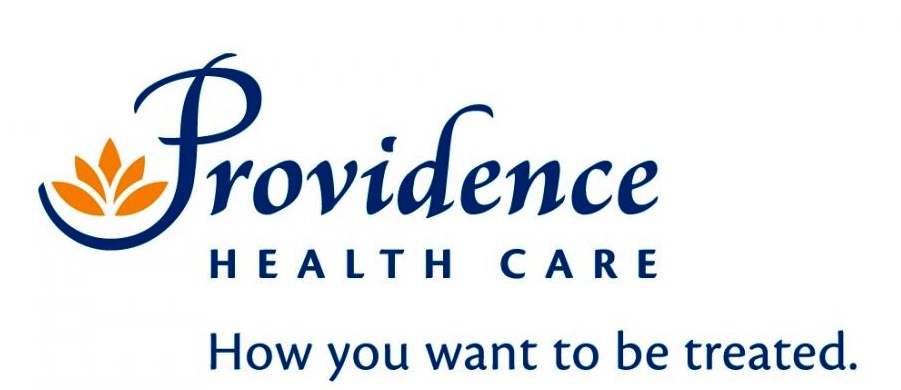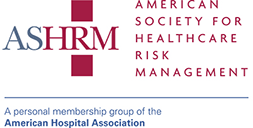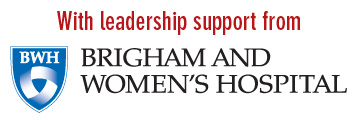 |
|
|
The 6th International Conference on Patient- and Family-Centered Care Models Partnership
|

The 6th International Conference on Patient- and Family-Centered Care ~ Partnerships for Quality and Safety, to be held August 6–8, 2014 in Vancouver, British Columbia, Canada, is a unique opportunity to not only learn about patient and family partnerships with clinicians, but to see the modeling of partnership in action.
Historically, IPFCC has included patient and family advisors as presenters since the first International Conference in 2003. In Vancouver, most of the over 100 sessions, as well as the poster presentations, will be led by teams that include patient and family advisors, as well as clinicians, staff, health care leaders, and researchers. Approximately 25% percent of the attendees will be patient and family advisors and leaders. These patient and family leaders—both presenters and participants—bring their unique experiences from around the globe and will share their own best practices and strategies for success.
IPFCC Welcomes Jim Conway and Karen McIntire as Closing Plenary Speakers
The 6th International Conference closing plenary will feature Jim Conway and Karen McIntire. Jim Conway, MS, is adjunct lecturer at the Harvard School of Public Health; Senior Consultant at Safe & Reliable Healthcare, Evergreen; former Senior Vice President and Senior Fellow, Institute for Healthcare Improvement (IHI); and former Executive Vice President and CEO, Dana-Farber Cancer Institute. Mr. Conway will discuss how partnerships with patients, families, the community, and the public assure high reliability in health care organizations.
Karen McIntire, Organizational Development Director, Southcentral Foundation (SCF), will share her personal experiences as an Alaska Native leader in this customer-owned and customer driven environment. Ms. McIntire has played a key role in SCF’s development and speaks frequently about the foundation’s journey to excellence. SCF developed the Nuka System as a way to transform a whole system of care, and received the Malcolm Baldrige National Quality Award in 2011.
The Conference will conclude with a Traditional Coast Salish Closing and Prayer by Elder Roberta Price.
Register Now for The 6th International Conference on Patient- and Family-Centered Care.
Read Brochure.
With leadership support from:

And support from our Program Partner:

Come to Vancouver Early and Stay Late ~ Enjoy Stanley Park
 Don't miss the many famous landmarks, monuments, First Nations totem poles, gorgeous gardens and fabulous views throughout Stanley Park. The Miniature Train is one of Vancouver's most popular attractions carrying more than 200,000 passengers per year. Visitors can dine at one of the park's restaurants while enjoying stunning views of the ocean and the ambience of the forest. Explore on your own by bike or on foot. Or opt to take a guided tour, on a horse-drawn carriage, trolley, or bus, while you learn about the park's rich history. Don't miss the many famous landmarks, monuments, First Nations totem poles, gorgeous gardens and fabulous views throughout Stanley Park. The Miniature Train is one of Vancouver's most popular attractions carrying more than 200,000 passengers per year. Visitors can dine at one of the park's restaurants while enjoying stunning views of the ocean and the ambience of the forest. Explore on your own by bike or on foot. Or opt to take a guided tour, on a horse-drawn carriage, trolley, or bus, while you learn about the park's rich history.
|
| |
ASHRM and AACN Partner with IPFCC in the Better Together: Partnering with Families Campaign |
|
IPFCC welcomes the partnership of the following organizations in launching the Better Together: Partnering with Families campaign: American Society for Healthcare Risk Management, American Association of Critical-Care Nurses, National Partnership for Women & Families, New Yorkers for Patient & Family Empowerment, and Health In Aging Foundation. Learn more about two of our partners: ASHRM and AACN.
 The American Society for Healthcare Risk Management (ASHRM), established in 1980, has nearly 6,000 members representing risk management, patient safety, insurance, law, finance, and other related professions. ASHRM “promotes effective and innovative risk management strategies and professional leadership through education, recognition, advocacy, publications, networking and interactions with leading healthcare organizations and government agencies. ASHRM initiatives focus on developing and implementing safe and effective patient care practices, the preservation of financial resources and the maintenance of safe working environments.” The American Society for Healthcare Risk Management (ASHRM), established in 1980, has nearly 6,000 members representing risk management, patient safety, insurance, law, finance, and other related professions. ASHRM “promotes effective and innovative risk management strategies and professional leadership through education, recognition, advocacy, publications, networking and interactions with leading healthcare organizations and government agencies. ASHRM initiatives focus on developing and implementing safe and effective patient care practices, the preservation of financial resources and the maintenance of safe working environments.”
Its mission is to "advance patient safety, reduce uncertainty and maximize value through management of risk across the healthcare enterprise.” Activities include, among others, education, sponsoring conferences and meetings, addressing technical risk management issues, producing publications, and maintaining a professional recognition program.
According to ASHRM's President, Jacque Mitchell, RN, BSN, CPHRM, FASHRM, “Families of patients are not just visitors, they are a vital part of the team caring for the patient. ASHRM believes that changing the concept of families as ‘visitors’ to one of partnership is a proactive approach to risk management.”
 The American Association of Critical-Care Nurses (AACN), the world's largest specialty nursing organization, represents the interests of more than 500,000 nurses who care for acutely and critically ill patients. AACN is dedicated to creating a health care system driven by the needs of patients and their families. The American Association of Critical-Care Nurses (AACN), the world's largest specialty nursing organization, represents the interests of more than 500,000 nurses who care for acutely and critically ill patients. AACN is dedicated to creating a health care system driven by the needs of patients and their families.
“Critical care refers to the kind of care a patient needs, not to where it’s given. No matter where a patient is—in an ICU, another hospital area, a long term acute care hospital or even at home—if s/he has complex care needs and the possibility of life-threatening situations, then the health care team—which includes a patient’s family—needs to provide critical care,” explains AACN's Chief Clinical Officer, Connie Barden, RN, MSN, CCRN-E, CCNS.
AACN sets standards for clinical practice, and educates and certifies nurses who care for the sickest patients. AACN awards certification for nurses who are CCRN-certified in critical care or PCCN-certified in progressive care. AACN funds, conducts and disseminates research that contributes to the care of high acuity and critically ill patients. The association publishes three journals and a newsmagazine for nurses to receive the most current clinical information.
AACN has published two research-based Practice Alerts about family presence. Although written for health professionals, it is important for patients and families to be aware of these Alerts. One focuses on hospital policies to determine family access; the other addresses family presence during CPR and other clinical procedures.
“AACN first talked about unrestricted visitation policies because we thought of family members as visitors. Then Dr. Nancy Molter, an AACN nurse who did pioneering research in this area, refocused our perspective. Family members are not visitors. They’re full-fledged members of the care team and their supportive presence is essential because we all want to achieve excellent patient outcomes,” states AACN's President, Teri Lynn Kiss, RN, MS, MSW, CNML, CMSRN.
Thanks to ASHRM and AACN for partnering with IPFCC on the Better Together campaign!
|
New York Times Blog Post: A Move to Extend Visiting Hours at Hospitals |
Read journalist and author Paula Span’s post, "A Move to Extend Visiting Hours at Hospitals" in New York Times blog, The New Old Age, in which she discusses IPFCC’s Better Together campaign “to persuade hospitals to eliminate restrictive visiting hours and permit families, broadly defined, to remain with loved ones throughout their stays, even in intensive care units.” Ms. Span notes that, “even in I.C.U.s, there’s scant evidence that visitors cause harm,” and she quotes from a JAMA commentary, co-authored by Don Berwick, “restricting visiting in I.C.U.s is neither caring, compassionate, nor necessary.” Citing Sharon Inouye, a Harvard geriatrician and director of the Aging Brain Center at Hebrew SeniorLife, for older adults, family presence during hospitalization “can serve a particularly crucial role: helping to ward off delirium,” which may afflict up to 50% of hospitalized seniors, with even higher rates for ICU patients. Ms. Span quotes IPFCC’s Bev Johnson, “You can’t partner with families if you’re locking them out of the hospital, especially when patients are most vulnerable.” Read the entire blog post.
Learn more about the Better Together campaign.
Also in the Vancouver Sun, read about Providence Health Care's hospitals in British Columbia, Canada, that are “blazing a trail” embracing a family presence policy and eliminating visiting hour restrictions. Providence Health Care is providing leadership support for IPFCC’s upcoming International Conference. See Conference article above.
|
Promoting Better Communication Among Clinicians, Patients, and Families to Improve the Quality of Care
|
In a recent blog post, Leana Wen, MD, emergency medicine physician and Director of Patient-Centered Care Research, Department of Emergency Medicine at George Washington University, describes how despite the treating physicians’ view of a wonderfully successful treatment for a heart blockage, a patient and his wife experienced his care as terrible. Dr. Wen explains, “… in their rush to open the blocked heart artery, they treated him as a disease to be cured, not a person to be cared for.” Lack of communication and the absence of common courtesies—both items seldom on the typical checklists for treatment of a heart attack—would have made a difference and improved the quality of care this family received. Read more…
In a similar vein, Jessica Nutik Zitter, MD, a critical care and palliative care physician, describes how, after almost allowing the wrong person to make a crucial decision for a critically ill patient, she decided she needed to use a checklist that “puts patients, and not just their organs, in the center.” Dr. Zitter now uses her Patient-Centered Checklist for every critically ill patient she treats in the ICU, noting that addressing the “human needs of a vulnerable patient is as crucial as those that deal with his organ function. After all, care is about the whole patient, not just his parts.”
The checklist that Dr. Zitter designed for ICU clinicians can also be “helpful to family members as they navigate” the ICU, and can “empower them to provide the information…that will ensure [the patient] receive[s] the most personalized and sensitive care."
IPFCC has tools to promote improved communication that are available as part of IPFCC’s Better Together: Partnering with Families campaign. The Pocket Guide for Families and the Expanded Guide for Families are designed for family members and other care partners to use when a loved one is hospitalized. The Pocket Guide for Staff offers strategies for clinicians and other staff to support families and care partners in taking an active role in decision-making and care for their loved ones.
|
|
In This Issue |
- The 6th International Conference on Patient- and Family-Centered Care Models Partnership
- IPFCC Welcomes Jim Conway and Karen McIntire as Closing Plenary Speakers
- Come to Vancouver Early and Stay Late ~ Enjoy Stanley Park
- ASHRM and AACN Partner with IPFCC in the Better Together: Partnering with Families Campaign
- New York Times Blog Post: A Move to Extend Visiting Hours at Hospitals
- Promoting Better Communication Among Clinicians, Patients, and Families to Improve the Quality of Care
- IPFCC’s Better Together Campaign ~ How to Pledge
- AHA/HRET Hospital Engagement Network (HEN) is Partnering with IPFCC
- AHRQ Hosts Webinar on
Patient- and Family-Centered Care: Approaches for Children and Seniors
- Register Now ~ IPFCC's Fall Intensive Training Seminar in Cambridge, Massachusetts
|
IPFCC’s Better Together Campaign ~ How to Pledge |

Last month the Institute for Patient- and Family-Centered Care launched the Better Together campaign, calling on all hospitals to eliminate restrictive visiting policies and welcome families 24 hours a day.
IPFCC is asking hospitals to pledge to transform their approach, so that
patients' families and loved ones are included in care and
decision-making according to patient preferences. Anna Roth, RN, CEO,
Contra Costa Regional Medical Center, stated, “There is a difference
between a 24/7 visitation policy and a welcoming policy. It’s not enough
to simply be open 24/7. We, as hospitals, need to be truly welcoming
places where families and loved ones are recognized and included as
essential to patient care.” Partnering with patients and families
improves the quality and safety of care. Watch videos to learn more.
Pledging
is easy! Your organization can be a champion and lead the way to meet
IPFCC’s goal to change policies and practices in 1,000 hospitals by
2017. Be a change agent by working to get your organization to recognize
that we are Better Together when a patient’s loved ones are welcomed as
partners in care rather than treated as "visitors."
As a pledging
organization, your hospital will be listed on IPFCC's website and have
the opportunity to become part of an online learning community to share
strategies, challenges, and successes.
A pledge requires
commitment at a leadership level, and agreement to take one concrete
step to begin the change process, such as reviewing your organization's
policy and website, with input from patients, families, clinicians, and
other staff. You can use the Better Together resources on IPFCC's
website to begin the process of change. Don’t forget to elicit input from patients
and families about their experience of hospital "visiting" policies and partner with them in changing your policy and practices.
Learn more about pledging and access the pledge form. |
AHA/HRET Hospital Engagement Network (HEN) is Partnering with IPFCC
|
|
The AHA/HRET Hospital Engagement Network (HEN)* is partnering with IPFCC to enhance the patient and family engagement (PFE) resources available to the HEN hospitals.
According to the AHA/HRET HEN, “Collaborative patient and family engagement is a strategy to build a patient- and family-centered health care system." In such a system, "patients and families are encouraged and supported as essential members of the health care team and there are meaningful opportunities for them to serve as advisors and partners in quality improvement efforts, patient safety initiatives, and health care redesign.”
For this HEN, Bev Johnson, IPFCC’s President and CEO, is facilitating a series of webinars and office hour sessions through November 2014. These opportunities are open to all health care professionals seeking to partner with patients and families and improve their experience. Recordings of and materials from educational offerings are available on the HRET-HEN’s Patient and Family Engagement Virtual Events page.
*The Hospital Engagement Network is designed to help identify solutions to reduce hospital acquired conditions and readmissions and spread them to hospitals and other health care providers.
|
| AHRQ Hosts Webinar on Patient- and Family-Centered Care: Approaches for Children and Seniors |
On July 22, 2014 1:00 PM - 2:30 PM EDT, IPFCC’s Bev Johnson will moderate AHRQ Health Care Innovations Exchange Webinar on Patient- and Family-Centered Care: Approaches for Children and Seniors.
This webinar is the second in a series designed to describe patient-
and family-centered care, share new approaches to care, and explore
lessons learned.
Presenters include
Michelle Rickerby, MD, and Diane DerMarderosian, MD, Co-Directors,
Hasbro Children’s Partial Hospital Program, who will discuss how their
program’s staff work collaboratively with families of children and
adolescents experiencing medical and emotional issues. Judith Rogers, PhD, MSN, RN, President, Holy Cross Hospital,
will share how developing a separate seniors-only emergency center, run
by geriatrics-trained staff, has enhanced and tailored care to the
needs and priorities of seniors and their families.
Register for this July 22, 2014 Webinar.
Access resources from this webinar series.
|
Register Now ~ IPFCC's Fall Moving Forward with Patient- and Family-Centered Care Intensive Training Seminar in Cambridge, Massachusetts
|

Join us in Cambridge, MA, November 3-6, 2014 at the Moving Forward with Patient- and Family-Centered Care Intensive Training Seminar. This seminar, with leadership support from Brigham and Women’s Hospital,
will help advance your efforts in creating and sustaining partnerships
with patients and families to improve health care quality, safety, and
the experience of care. The seminar is being held at the Hyatt Regency
Cambridge.
Registration now open. Early Bird Registration will be available through September 4, 2014.
|
Links
|
|
|
Previous Issues
|
|
|
About Us
|
Founded in 1992 as a nonprofit organization, the Institute for Patient- and Family-Centered Care works to advance the understanding and practice of patient- and family-centered care in all settings where individuals and families receive health care.
|
|
|
♦ ♦ ♦ ♦ ♦ ♦ ♦ ♦ ♦ ♦ ♦ ♦ ♦ ♦ ♦ ♦ ♦ ♦ ♦ ♦ ♦ ♦ ♦ ♦ ♦ ♦
REGISTER NOW!
THE 6TH INTERNATIONAL CONFERENCE ON
PATIENT- AND FAMILY-CENTERED CARE
PARTNERSHIPS FOR QUALITY & SAFETY
August 6-8, 2014
Vancouver, British Columbia, Canada
Brochure
Register Now
 
♦ ♦ ♦ ♦ ♦ ♦ ♦ ♦ ♦ ♦ ♦ ♦ ♦ ♦ ♦ ♦ ♦ ♦ ♦ ♦ ♦ ♦ ♦ ♦ ♦ ♦
|
Institute for Patient- and Family-Centered Care
6917 Arlington Road, Suite 309 • Bethesda, MD 20814
301-652-0281
www.ipfcc.org |
|
|
|